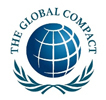The UN Global Compact (UNGC) Board underscored the role of the private sector and partnerships in advancing global challenges, particularly related to the Paris Agreement on climate change and the 2030 Agenda on Sustainable Development, including the Sustainable Development Goals (SDGs).
Members expressed broad recognition that partnerships are essential for leveraging resources and expertise, and reaching solutions faster and more effectively, according to the Compact's press releases.
 14 January 2016: The UN Global Compact (UNGC) Board underscored the role of the private sector and partnerships in advancing global challenges, particularly related to the Paris Agreement on climate change and the 2030 Agenda on Sustainable Development, including the Sustainable Development Goals (SDGs). Members expressed broad recognition that partnerships are essential for leveraging resources and expertise, and reaching solutions faster and more effectively, according to the Compact’s press release.
14 January 2016: The UN Global Compact (UNGC) Board underscored the role of the private sector and partnerships in advancing global challenges, particularly related to the Paris Agreement on climate change and the 2030 Agenda on Sustainable Development, including the Sustainable Development Goals (SDGs). Members expressed broad recognition that partnerships are essential for leveraging resources and expertise, and reaching solutions faster and more effectively, according to the Compact’s press release.
Speaking to the Board on 14 January 2016, in New York, US, UNGC Executive Director Lise Kingo emphasized the potential to “turn the global goals into local business.” UN Secretary-General Ban Ki-moon called on UNGC to play a leading role with business in implementing the SDGs, and urged business to “bring sustainability into the center of their operations and the mainstream of their thinking.” Ban emphasized that many of the Compact’s initiatives, such as on climate, water, women’s empowerment, children’s rights, management education, peace and rule of law, cover many issues that now fall under the SDGs, noting that ‘Caring for Climate’ and the ‘Women’s Empowerment Principles’ are the largest business-led initiatives of their kind. Ban noted that the UNGC’s Leaders Summit in June 2016 will allow businesses to demonstrate how they are putting the SDGs into action. He also encouraged business engagement in the World Humanitarian Summit in May, expressing hope that the Summit will launch a global framework connecting private sector organizations with humanitarian partner organizations and governments. He said the framework would identify, create and support local private sector networks for risk reduction, emergency preparedness, response and recovery in vulnerable countries.
During the luncheon also on 14 January, which was co-hosted by the Permanent Representatives of Denmark and South Africa, Ban said more than 1,000 companies have set an internal price for carbon or plan to do so in future. He said carbon markets are linking up between cities and global regions, and investors are decarbonizing their portfolios. However, he noted, further steps must be taken, such as ensuring that “climate sensitivity” becomes standard for all industries.
The Compact’s Board is comprised of stakeholders from business, civil society and labor, and chaired by the UN Secretary-General. [Global Compact Press Release] [UN Secretary-General’s Remarks, Board Meeting] [UN Secretary-General’s Remarks, Luncheon] [Board Information]